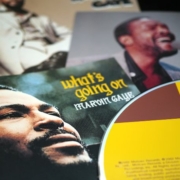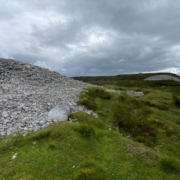Monday of Holy Week: Living in the Web of Reciprocity
BY JIM ROBINSON, PH.D | March 25th, 2024
Today’s readings
Versión en español
In today’s gospel, Mary anoints the feet of Jesus with an expensive, perfumed oil, and then dries them with her hair. This is a radical act of ecstatic, abundant, embodied love that is personalist to the core. And yet, as the flowing oil’s aroma fills the room, Judas remains frozen in criticism. Outwardly, he insincerely suggests that the oil could have been sold, and the proceeds “given to the poor.” Inwardly, he ponders the money he might have stolen.
Let’s consider this scene alongside Robin Wall Kimmerer’s vision of “gift economies,” which she distinguishes from market economies. While market economies are driven by scarcity, competition, and accumulation, gift economies are guided by a sense of shared abundance, a recognition that “there is enough if we share it.”
In gift economies, “the currency of exchange is gratitude and relationship rather than money.” For Kimmerer, “to name the world as gift,” rather than commodity, means “to feel one’s membership in the web of reciprocity.” Within this web, to flourish is to foster generative, generous relationships, rather than feeding the “illusion of self-sufficiency.”
This illusion enraptured Judas. He wanted to snip his thread from the wider web of life. He perceived creation through the lens of money, rather than as gift. Mary models a life lived within a circle of shared abundance. She receives the gifts of life and pours them out on her beloved.

Guided by Mary and Kimmerer, we might ask ourselves: how can we relate to creation as an abundance of gifts to be shared, rather than a collection of commodities to be possessed? How will we restructure the systems that violate these gifts and defy the will of their Giver?
This Lent, I find myself called to live into phrases I hear frequently in the halls, kitchen, and auditorium at Maryhouse Catholic Worker. I find myself called to aid in “building the new in the shell of the old,” by stepping into circles of sharing, where it is “easier to be good.”
Jim Robinson Ph.D., is a member of the Religious Studies Department at Iona University, where he serves as Associate Director of the Deignan Institute for Earth and Spirit. Jim received his Ph.D. in Theology from Fordham University, his M.T.S. from Harvard Divinity School, and his B.A. from Drew University. He is a GreenFaith Fellow and is involved in Agape Community (Hardwick, Mass.), Benincasa Community (Guilford, Conn.), and Maryhouse Catholic Worker (New York City).









This is fabulous. I need to read Kimmerer. Thanks.
Wow! My mind is crackling with the possibilities. Thank you!
I cannot help but think of migrants and refugees when reading this. God, in Your mercy, hear our prayers.
“… snipping the web of connection.” How easy that is to do. I am currently writing about ‘weaving a web of care in homelessness nursing’. It all resonates so well!
Gift economies makes perfect sense if you believe in God. For God provides us with everything we need each day. We can be grateful for what we have to eat. Or we can rejoice we have more than enough to share with others when we bless our food.
The Oasis Peace Plan suggests that nations give from their abundance rather than compete in order to have peace in our world.
Thanks Jimmy. Gift giving, gift receiving, and gift reciprocating fosters healthy worldbuilding.